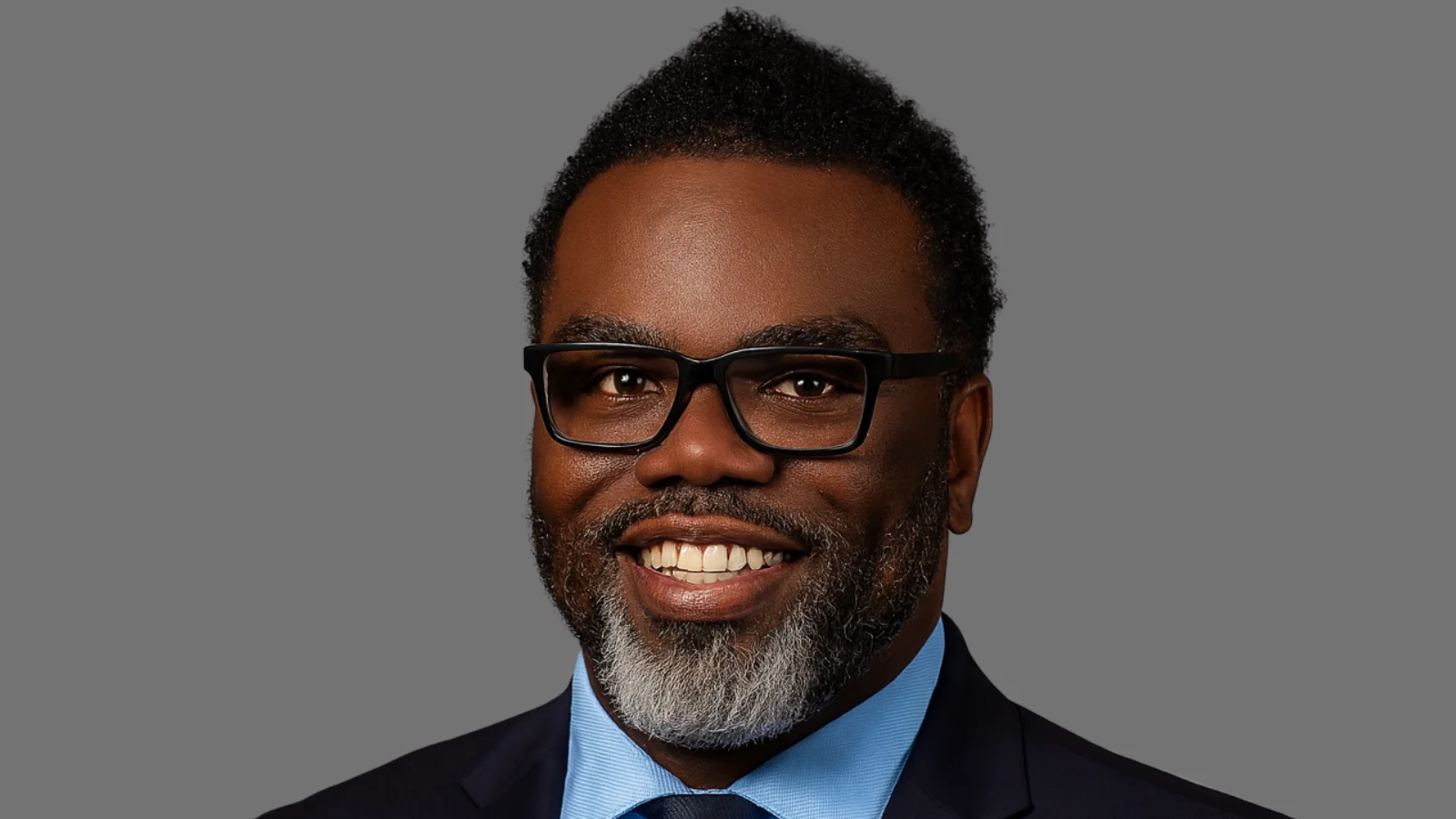Brandon Johnson, Mayor of Chicago | Official Website
Brandon Johnson, Mayor of Chicago | Official Website
Chicago has experienced a significant reduction in violent crime during 2025, according to a recent Axios report. The city led the nation with a 22.1% decrease in overall violent crime over the first nine months of the year. In addition, homicides dropped by 33% in the first half of 2025, which is twice the national average.
A leaked email from Department of Homeland Security (DHS) spokesperson Tricia McLaughlin revealed that the Trump administration sought to claim credit for these improvements through “Operation Midway Blitz,” despite the operation not beginning until September 8th. In her email, McLaughlin wrote, “Thanks to DHS law enforcement, Chicago has experienced the fewest summer murders since 1965!” While it is accurate that Chicago recorded its lowest number of summer homicides since that year, Operation Midway Blitz had not started during this period.
Mayor Johnson responded critically to these claims: “It is a slap in the face to the men and women of our Chicago Police Department who worked hard and put their lives on the line throughout the summer to drive down crime and violence for the Trump administration to attempt to 'take credit' for the reduction when they weren’t even in Chicago. It's also an insult to the Community Violence Intervention workers who put themselves in harm’s way to de-escalate conflicts on the most challenging blocks in Chicago, and to the countless community organizations that have been doing the steady work to reduce violence in their neighborhoods for decades.”
Johnson attributed Chicago’s record reductions in crime to efforts by police and investments into community safety initiatives such as Community Violence Intervention programs, youth employment opportunities over summer months, and violence prevention strategies. He noted that progress was also supported by modernizing police investigations, removing illegal firearms through inter-agency cooperation and legal action, and directing resources toward communities historically lacking investment.
Data cited by DHS and President Trump align with details from McLaughlin’s leaked correspondence, indicating what appears to be a coordinated effort by federal officials to take credit for local improvements. The statistics referenced do not accurately reflect changes following Operation Midway Blitz; rather, they match broader year-to-date figures or are less significant than reductions observed since Mayor Johnson took office.
Citywide statistics show declines across several categories since early September: homicides fell by 31.5%, shootings by 40.5%, vehicular hijackings by 47%, and all violent crimes decreased by 29.5%. However, districts where Immigration and Customs Enforcement (ICE) and Customs and Border Protection (CBP) focused their activities saw smaller improvements—homicides declined only 7.7% there—with reports suggesting ICE/CBP operations may have undermined trust between residents and authorities. Shootings dropped 32.9% in those areas compared with citywide averages over similar periods.
911 call volumes have notably fallen in neighborhoods affected by ICE/CBP activity since Operation Midway Blitz began—a trend reported by the Chicago Tribune.
For all of 2025 so far:
- Homicides decreased by 29.2%
- Shooting victimizations dropped by 36%
- Robbery victimizations declined by 34.2%
- Vehicular hijackings fell by 48.3%
- Overall violent crime went down by 22.4%
Since Mayor Johnson assumed office:
- Homicides decreased by 39.6%
- Shootings dropped by 45.8%
- Violent crime declined by 29.8%
In September remarks addressing federal claims about crime reduction efforts in Chicago, Mayor Johnson stated: “The fact of the matter is we are driving violence down in this city and we’re using every single resource that’s available to us... This is a group project, but we’re not going to allow the President...to put his name on our paper.”
He added: “The Trump administration has shifted strategies from fear-mongering about crime in Chicago to attempting to take credit for the reduction in crime and violence. You cannot have it both ways.”
Deputy Mayor of Community Safety Garien Gatewood said: “The reductions that we have seen are because of the hard work of CPD, the hard work of CVI [Community Violence Intervention], [and] ...Chicagoans...who have stepped forward and partnered with us... This work began long before ICE arrived and it will continue long after they’re gone.”
Deputy Mayor for Immigrant, Migrant, and Refugee Rights Beatriz Ponce de Leon commented: “ICE has not made our city safer. They have caused fear, chaos, and confusion in our communities... It is important that Chicagoans continue to educate their communities on their rights and resources... We know that ICE may return with a larger force, so we will continue to stay vigilant.”
Since Operation Midway Blitz started, there have been numerous allegations against ICE/CBP personnel involving excessive use of force—including shooting incidents involving civilians—and other conduct issues such as detaining citizens without cause or violating internal guidelines regarding detainee treatment.
The Axios analysis emphasized that trust between police officers and communities—especially communities of color—is central to current anti-crime strategies pursued under Mayor Johnson’s leadership.
This assessment echoes findings from the Council on Criminal Justice, which reported that Chicago more than doubled national homicide reduction averages during early 2025.





 Alerts Sign-up
Alerts Sign-up